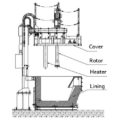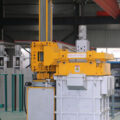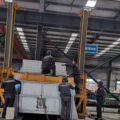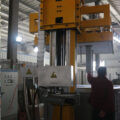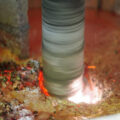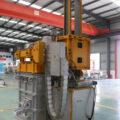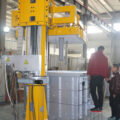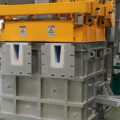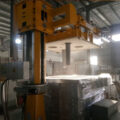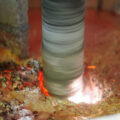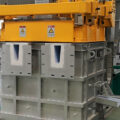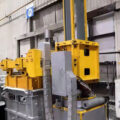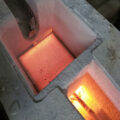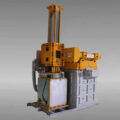The aluminum melt degassing unit is located between the storage furnace and the casting machine. In the degassing tank, the nitrogen blown into the aluminum alloy melt is crushed by the rotating silicon nitride rotor, forming a large number of dispersed bubbles. Therefore, the aluminum alloy liquid and nitrogen are in complete contact in the processing tank.
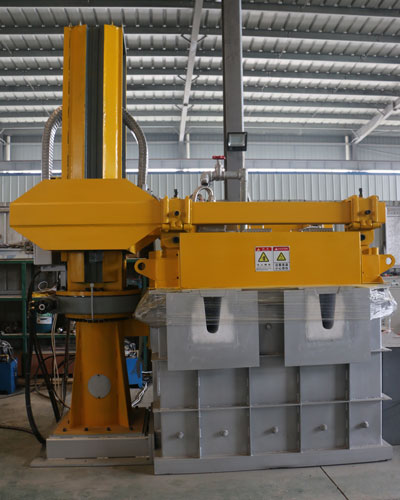
According to the air pressure difference and the principle of surface adsorption, the bubbles absorb the hydrogen in the melt and adsorb the oxidized slag. It rises to the surface of the melt and forms dross. The aluminum alloy melt flows from the outlet of the degassing aluminum device to the casting machine. The aluminum alloy liquid continuously enters the degassing device, and the nitrogen is continuously blown in. Through the purification process, the purpose of purifying the aluminum alloy liquid is realized.
The aluminum melt degassing unit includes two internal chambers: a clean room and a heating and heat preservation room. It is partitioned by SiC material, and the bottoms of the two chambers are connected. After the aluminum alloy liquid is degassed and the residue is removed in the cleanroom, it flows into the insulating layer from under the partition. The insulating frost is heated by a U-shaped silicon carbide support kit silicon carbide protection tube. The outer shell of the box is made of 10 mm steel plate, and the inner lining is made of refractory material.
As the demand for non-ferrous metal castings continues to increase, foundries are also facing increasing pressure to improve casting quality, especially in the aerospace and automotive industries. With the demand for aluminum castings, competition among foundries has become increasingly fierce. Foundries must run the most efficient and cost-effective processes in order to provide competitively priced castings worldwide. In order to remove impurities and obtain better quality metal, it is best to choose a rotary degassing device.

